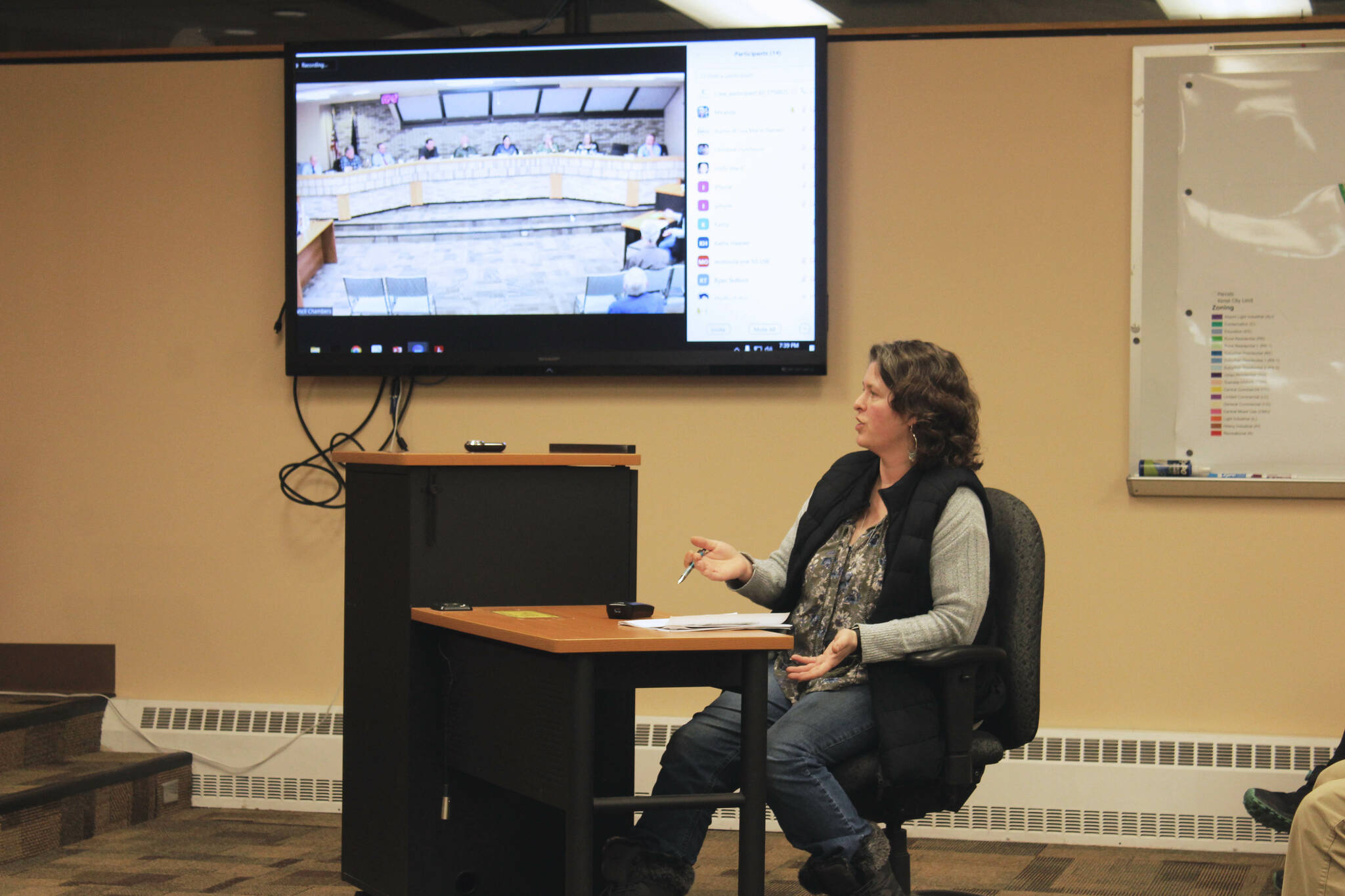The Kenai City Council on Wednesday again delayed action on an ordinance that would allow more city residents to own chickens. The decision came after more than an hour of public testimony from residents largely split on the issue.
Up for consideration was legislation brought forth by council member Alex Douthit and approved for introduction by council members in early January. The ordinance, if approved, would allow Kenai residents to keep up to 12 chicken hens on certain lots smaller than 40,000 square feet in more city zones. Council member Teea Winger has since signed on as a cosponsor.
The City of Kenai would continue to prohibit livestock in the city’s Urban Residential, Suburban Residential 1, Suburban Residential 2 and Townsite Historic zones.
The council ultimately voted to postpone a vote on the ordinance until their March 1 meeting, and to refer it back to the planning and zoning commission for a work session. That commission conditionally recommended approval of the legislation during its Jan. 25 meeting, where they heard public testimony, pending a public work session and some changes to the ordinance language.
The legislation as proposed would require that hens be kept in an enclosed shelter or be fully fenced in at all times. Enclosed shelters would not be allowed in a front yard when located in a residential zoning district. Other setbacks are described. Any hen shelters or structures would need to be made of “durable weather resistant materials” and be kept in good repair.
Under the proposed legislation, chickens could only be slaughtered on the property if in an area not visible to the public or to adjoining properties. Hens would not be allowed to be kept in a way that creates a public nuisance as described by city code, however, keeping hens in and of itself would not be considered a nuisance or disturbance.
Proposed amendments to the legislation were included in Wednesday’s city council packet. One, submitted by council member Henry Knackstedt, would prohibit chickens in Kenai’s Airport Light Industrial Zone, would reduce the number of chickens permitted from 12 to six and require enclosures to be kept in a resident’s rear yard.
A separate amendment from council member Victoria Askin would allow a maximum of 12 chickens in Kenai’s Rural Residential Zone and a maximum of six chickens in all other zones except for those prohibited in the legislation.
“The keeping of 12 chicken hens on smaller lots within denser areas is excessive for providing eggs for the average household or as household pets,” Askin wrote in a memo accompanying her proposed amendment. “The raising of chicken hens could affect or benefit the community and it is important to balance the number of chicken hens accordingly.”
Askin said during Wednesday’s council meeting that she has raised chickens “all (her) life” and currently has 12 chickens that she keeps on a 40,000-square-foot lot. She said she supports having a chicken ordinance “of some sort,” but said the legislation is too broad.
“I’m very much in favor of this going back to planning and zoning and us addressing the issues that have been brought forth by our citizens and coming up with a compromise,” Askin said. “As it’s written now, I, too, will vote no.”
Council member Deborah Sounart had similar thoughts.
“Maybe the opportunity does need to get out there for more people to put their opinions in on how to do this,” Sounart said. “Because if it’s worth doing — and I truly believe it is, I would like to see some kind of chicken ordinance to go forward — but if it’s worth doing, it’s worth doing right.”
Between public comments submitted in advance and people who testified during Wednesday’s meeting, council members heard input from at least 18 people, 10 of whom said they support the ordinance, five who said they opposed it and three who did not clearly state an opinion.
Testimony grew heated at times, with those in favor saying letting more residents have chickens would boost Kenai’s food security and permit a practice that is already happening throughout the city, and those opposed being concerned about related noise and mess and how the rules would be enforced.
“Keeping a small flock of chickens in your own backyard has many benefits from supplying you with fresh, healthy eggs from well-cared-for animals, to giving you great fertilizer for gardening, to providing lively pets—as well as being part of the drive to local, sustainable food systems,” wrote Rachael Gaedeke in letter in support of the ordinance.
Others worried about whether more chickens would attract predators.
“I chose to live in the city for a reason,” wrote Bill Vedders. “Chickens are loud, stinky, and a bear attractant. If this passes I could potentially live between 24 chickens! This is not why I decided to live inside the city limits of the peaceful city of Kenai.”
Members of the public will again be able to share their thoughts on the legislation during the Planning & Zoning Commission’s work session at the city council’s next public hearing, scheduled during their March 1 meeting.
Wednesday’s city council meeting can be streamed on the City of Kenai’s YouTube channel.
Reach reporter Ashlyn O’Hara at ashlyn.ohara@peninsulaclarion.com.

